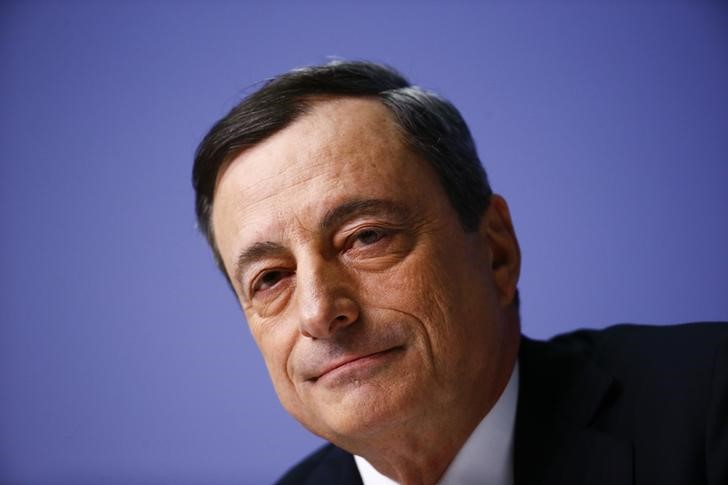(Bloomberg) -- Mario Draghi said that the European Central Bank still can’t claim success in its struggle to restore inflation in the euro area -- despite strong economic growth.
“While our confidence that inflation will converge toward our aim of below, but close to, 2 percent has strengthened, we cannot yet declare victory on this front,” the ECB president said in his opening statement at the European Parliament in Strasbourg on Monday. “Monetary policy will evolve in a fully data-dependent and time-consistent manner.”
With the euro-area economy expanding at the fastest pace in a decade and inflation showing signs of picking up, policy makers are pondering on the smoothest way out of their 2.6 trillion-euro ($3.2 trillion) asset-purchase program. One area of concern is exchange-rate volatility, which Draghi reiterated requires monitoring for its impact on inflation.
Governing Council members expect to add a short taper to quantitative easing -- currently set to expire in September, and some officials have urged Draghi to give investors a clearer signal on how long interest rates will stay low.
Expanding Robustly
“The euro-area economy is expanding robustly, with stronger growth rates than previously expected and significantly above potential,” Draghi said. “While we can be more confident about the path of inflation, patience and persistence with regard to monetary policy is still warranted for underlying inflation pressures to build up and inflation to converge durably toward our objective.”
Draghi comes to the European Parliament to present the ECB’s 2016 annual report but lawmakers can quiz him on a wide range of subjects, including his opinion on candidates to succeed Vice President Vitor Constancio in June. Parliament members get to cast a non-binding vote on nominees. Ireland has put forward central bank governor Philip Lane, while Spain, which has long claimed the seat it lost six years ago, hasn’t yet made a proposal.
They may also raise the topic of reform projects aimed at strengthening the euro area after the proposals of French President Emmanuel Macron. Policy makers have urged governments to capitalize on the ECB’s ultra-expansionary stance to make the 19-nation region more resilient to future shocks.
“It is important to complete the architecture of the banking union by putting in place the agreed common backstop to the Single Resolution Fund,” Draghi said. “A fully fledged European deposit-insurance scheme is an indispensable counterpart to the single currency as everyone in the euro area should be able to have confidence that the money in their bank account enjoys the same level of protection.”
